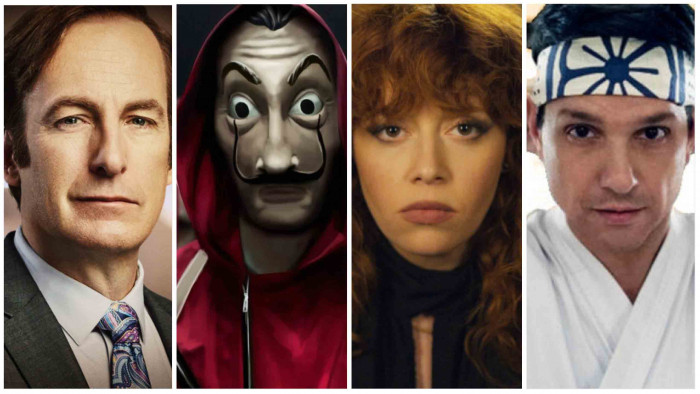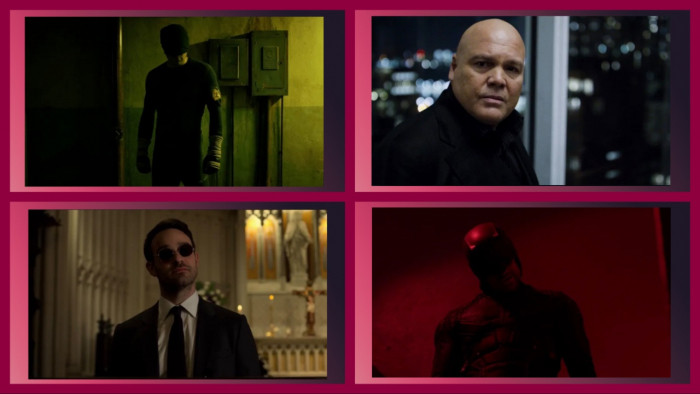What Jeremy Clarkson’s popularity says about all of us
Joe Madden deconstructs our country’s questionable infatuation with the one they call Clarkson


Joe Madden deconstructs our country’s questionable infatuation with the one they call Clarkson
Like Brexit or Islamophobia, Jeremy Clarkson isn’t a subject you inject into polite conversation unless you’re at least 90 per cent certain of where everybody present stands on it. Because outside of politics, no figure is more polarising in 2016 Britain. To Clarkson’s fans he’s telly’s biggest legend; the last bastion of telling-it-like-it-is; the pre-eminent practitioner of humour’s liveliest strain, banter. To his haters he’s telly’s biggest bellend; boorish white-male privilege incarnate; the pre-eminent perpetrator of humour’s lowliest form, ‘banter’.
Jeremy towers over British cultural life like a glum-jowled, mum-jeaned behemoth. Everyone has an unshiftable standpoint on Clarkson; it can create an instant conspiratorial friendship between two strangers, or send a first date whooshing around the U-bend.
Following an extended hiatus, Clarkson returns to our screens next week in Amazon’s much-hyped, blisteringly expensive The Grand Tour. He’s back, he’s apparently never going away, and we all need to come to terms with that. So in the spirit of healing this troubled nation’s divisions, let’s see if we can’t at least try to understand each other’s opposing Clarkson viewpoints, shall we?
Firstly, let us pinpoint the man’s appeal. Sir Cary Cooper, professor of psychology at the University Of Manchester, believes that much of it derives from Clarkson’s anarchic indifference to playing the celebrity game. In an era when every public figure has been media-trained into robotic amiability, Jezza’s refusal to play nice is thrillingly transgressive.
“It’s a characteristic Clarkson shares with Farage, Trump, Boris Johnson, even Putin,” says Cooper. “They think it, they feel it, and so they say it. They’re robust, self-confident. They don’t self-censor and people respond to that, because so few celebrities or politicians ever say what they really think, as they’re so desperate to be liked.”
Clarkson is especially popular with right-wingers, says Cooper, because he doesn’t make them feel like they should be embarrassed about their views (he was, you may recall, in attendance at Thatcher’s funeral). “Most celebrities want to be viewed as left-of-centre; if they’re right-wing, they tend to keep it to themselves. Clarkson, though, is happy to be seen as right-wing.”
Clarkson’s brand of right-wing machismo is all about Cutting The Crap and Getting Stuff Done – and it’s intoxicatingly reckless. “We’re in an unstable, unsettled phase right now,” says Cooper. “People feel like those in power aren’t being straight with them. In the current climate, Clarkson would do very well in politics. Farage and Trump generally appeal to less well-educated people in low-skilled jobs, but Clarkson’s appeal spans the entire social spectrum. He’d get elected just by being himself.”
Except, thing is, Jeremy is perhaps not ‘being himself’ at all. Anecdotal evidence suggests that IRL Jeremy is very different from TV Jeremy – not only in terms of demeanour, but also in terms of the strident opinions he espouses from behind all those supercar steering wheels. Reaching out to people who’d met him, a picture emerged of a more thoughtful, less reactionary character. “This probably isn’t what you’re after,” went one typical response, “but he was really, really nice.”

Journalist Rich Pelley met and interviewed Jeremy Clarkson numerous times (“He’d always ask for me”) while working at Nuts, a magazine that enjoyed a symbiotic relationship with Clarkson and Top Gear. “I’d say I know him pretty well,” says Pelley. “He once sent me a Christmas card addressed to Mr C*nt Face.” So, how does Clarkson the man differ from Clarkson the performance? “He’s happier. Cleverer. Politer. Shyer. He’s a pantomime, and he knows he is. He’d often say things like, ‘You know me – I’m not really like that.’”
Jim Edwards struck up a friendship with Clarkson while working as a BBC courier and making regular drop-offs to the Top Gear studio. “I was definitely expecting a dickhead before I met him,” he says, “but he totally confounded my expectations. An absolute gentleman, very easy company. You meet all sorts in this job, and most backstage people get treated like sh*t by the acts, but he was the opposite. Always very interested in whatever motorbike I was using at the time, and really knowledgeable about them. Told me outright that it was a myth that he hated motorbikes. That was all ‘just for the telly’.”
TV’s Jeremy Clarkson™ is almost entirely a fictional construct, says Jim. “Only an idiot would judge a person from what you see of them on TV. An on-screen persona is massively amplified, and its purpose is to entertain, nothing else. It’s not real.”
OK. But. Does the knowledge that Clarkson’s a nice guy really and ‘only joking, mate’ make it all OK? Does it mitigate the time he called Gordon Brown a “one-eyed Scottish idiot”, or described Mexicans as “lazy, feckless, flatulent and overweight”, or declared that he’d have striking public-sector workers “executed in front of their families”, or called an Asian man a “slope”.

Forced to apologise on Clarkson’s behalf after he told staff from South Korean car firm Hyundai that they’d probably eaten dogs for lunch, a fix-grinned BBC spokesperson said, “Jeremy’s colourful comments are always entertaining, but they are his own comments and not those of the BBC. More often than not they are said with a twinkle in his eye.” Did you not see the twinkle? It was right there, in his eye!
Clarkson’s defenders delight in scoffing at those offended by him. But at what point does the ‘it’s just banter’ defence become unworkable? Because even if Jeremy doesn’t really ‘mean’ any of it, he must know that his utterances will fuel and validate the dark prejudices of others. And if he does ‘mean’ it, well... that would objectively make him a bigoted bully.
“If much of what Clarkson says is ‘an act’, I’d want to know why he feels the need to present himself in this way,” says ‘poet laureate of Twitter’ Brian Bilston, who made his name with a series of Clarkson-mocking poems. “He represents, to me, a peculiarly British kind of awfulness; a vicious strain of intolerance lurking beneath blokeish bonhomie. And there’s an arrogance propping it all up, an assumption that the ‘problem’ is not with whatever verbal indiscretion has been committed, but with whatever group takes issue with it – ‘muesli-munching environmentalists’, ‘bra-burning feminists’ and so on. I suspect he does think in those kinds of crass stereotypes, and sees himself in the role of Our Great Nation’s last line of defence against political correctness gone mad.”

To repeat, however: he’s never going away. Clarkson’s haters might like to believe that his appeal is limited to a very particular kind of Brit; the kind of honk-voiced men who, in March 2015, drove a tank to the BBC to deliver a petition demanding that Clarkson be reinstated, following his sacking for assaulting a producer. The truth is, however, that Clarkson’s fanbase is far more diverse than that.
Viewing figures for Clarkson-era Top Gear regularly topped the 7 million mark, which is frankly bananas when you consider that its core subject (cars, and the driving thereof) is of only passing interest – if that – to most people. It was Clarkson, not cars, that those millions were tuning in for – the show could’ve been about tea towels or button collecting for all most of them cared.
Because he is undeniably brilliant at telly: swift-witted and unflappable, a unique mix of scene-stealing charisma and pubby relatability, all filtered through that strange, galvanising cadence. Amazon wouldn’t have forked out £160m for Clarkson – plus Thingy, and the short one – if there was nothing to him beyond near-the-knuckle jokes.
It’s a shame, then, that he’s come to rely on those increasingly perilous jokes so heavily. Because once Clarkson’s entire raison d’être becomes saying the unsayable, the only way is down. Outrageousness requires constant escalation to maintain, and before he knows it he’ll be in Katie Hopkins territory – at which point ‘I’m not really like that’ and ‘it’s all just for telly’ aren’t going to cut it any more. Maybe he’ll pull back before he gets to that point. Probably, though, he won’t.
To paraphrase Aaron Sorkin’s summation of Mark Zuckerberg in The Social Network: You’re not an arsehole, Jeremy. You’re just trying so hard to be.
The Grand Tour is on Amazon Prime Video from 18 November
(Sculpture made for ShortList by Wilfrid Wood)








